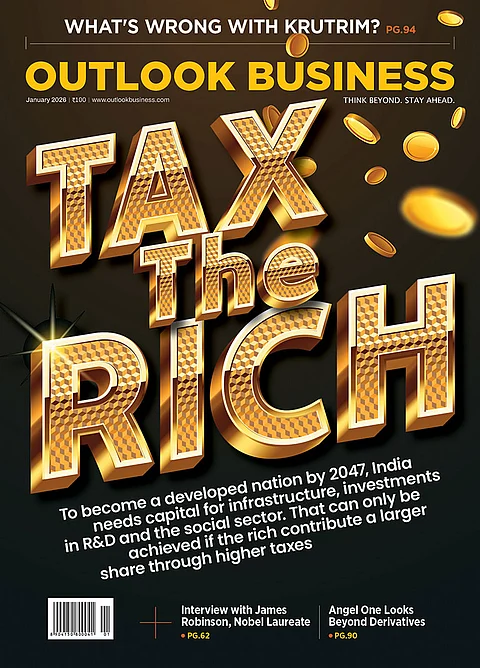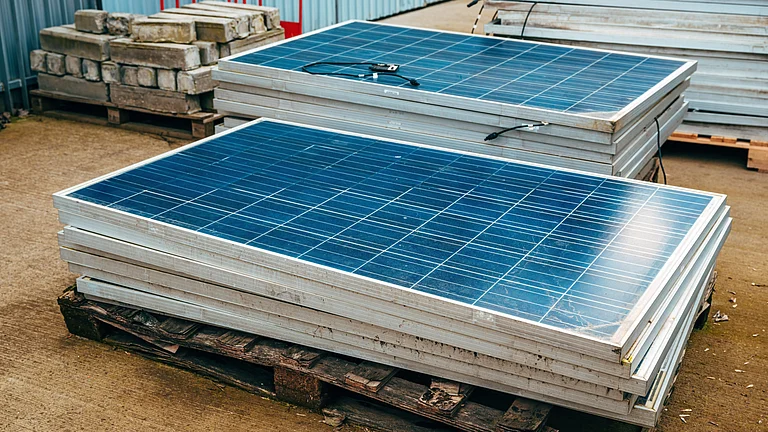N Mahalakshmi, editor, Outlook Business: Sumit, where do you plot Indian companies as opposed to the developed world with respect to both quality and technology?
Sumit Sawhney, MD & CEO, Renault India: If I have to map Indian suppliers from an innovation point of view, they are pretty strong. In terms of building quality, I think it's a learning curve and we were successful in making them work with us, by making them understand the global process.
Suppliers who have the zeal to learn, have succeeded. For instance, 60% of our suppliers are now going to supply to Latin America. Clearly, we have an edge in India, when looking at technical skills. If I talk about my own company, we have an engineering and R&D centre in India where, as of today, we have more than 6,000 people working and now the mandate is to take it to 7,000 by the end of this year.
Mahalakshmi: Jean, where do you map your competition? Since, in your business you have a large unorganised sector, you also have organised players that are making the leap in terms of quality. Do you see India close enough in terms of quality and technology to global counterparts?
Jean Charles Thuard, MD & CEO, Legrand India: We have two type of competitors — multinational companies and strong Indian leaders. I can see that the level of quality and systematic approach have significantly improved from 15 years back, when I first came here. The competition is also closer than it was at the time, the market is changing and the practices are changing too. We realised that we have rediscovered the reality of India, since people are now more motivated to learn, improve and develop themselves and the organisation. This has been one of the reasons for our success.
Mahalakshmi: Pratyush, where do you see India when you look at the global map? Where do you plot India in terms of technology and quality?
Pratyush Kumar, president, Boeing India & vice president, Boeing International: There are very few places, which have the scale, breadth and depth of technical talent like India. We look at markets across the world, which are high on demand and India per se has a huge market demand with 20% plus growth in air traffic. We also see India as a source of competitiveness, both in terms of technical talent and the ability to manufacture world-class quality. It is one of the top two markets in the world since it has a very competitive cost structure for highly engineered parts and components that ultimately go into airplanes.
Mahalakshmi: Unni, what do you think is truly India's competitive strength? Most people we talk to say when it comes to scale, China beats us hollow, but when it comes to some level of customisation, India in terms of quality perception is higher. Is that truly our competitive advantage or is there anything else that we can really leverage on and position as?
MS Unnikrishnan, MD & CEO, Thermax: China has built a scale because of which they have overtaken everybody in various areas. But if we divide businesses into two areas – one, the skill-intensive manufacturing and second, the line manufacturing — my personal experience is that with skill-intensive manufacturing, India cannot be beaten by anybody in the world. But when it comes to discipline in working, Indians are far behind. Going back to Amartya Sen’s Argumentative Indian mentality, we are intellectually very strong but discipline wise, a little on the back foot. I will not bet on India in mass manufacturing unless it is for the cheap labour available here. The greatest opportunity, I believe for India is Industry 4.0, where you are going to have sensors and artificial intelligence to play along with big data. They're going to run businesses for the rest of the world. That's the next opportunity where India’s intellect will be utilised.
If you are thinking that Foxconn is going to invest in India and we are going to make mobile phones for China and automobiles for the world, I have my suspicion. India manufactures for India, but if India is to make it for the world, it is only the intellectual capability of the Indians which will play in the long term.
Mahalakshmi: Artificial intelligence and automation, are very good points to talk about. Arvind do you think, it a threat or an opportunity for India at this point in time?
Arvind Mediratta, MD & CEO, Metro Cash & Carry India: I would say that automation and technology are enablers rather than threats to the retail or the wholesale industry. Customers, today, want choices, they call the shots.
Ultimately, the winners will be people who are in the omni-channel space, where technology will play a very important role. In our kind of business, which is more B2B, relationships are also important. It cannot be purely technological, people have queries about products and they want to touch and feel products, so human relationships cannot be substituted. But technology can play a much important role, for example, robots being used as waiters in some European markets. In India right now, productivity in many areas is quite low and artificial intelligence, automation and technology could make a big difference.
Mahalakshmi: Sumit, is automation a big disruptor for the SMEs in India? Automation on shop floors — is that a big challenge or an oppurtunity for smaller companies?
Sawhney: No, it's clearly an opportunity, not a challenge. I think automation definitely delivers efficiency and quality, which makes the product more competitive. When I see India today, for us the man-power cost is low but that can never remain as a competitive advantage for India. 10 years ago, China was probably in the race, but today, China is 3x more expensive on manpower. So, automation definitely drives quality and efficiency and that will help us get the right products and create a lot of other jobs.
Mahalakshmi: Concluding this discussion, I just need each of you to talk about one defining thing that companies and Indian entrepreneurs must do, to compete, scale and sustain in the global space.
Thuard: I would say it is to be consistent, to keep the promise and to keep up the momentum of development in our industry. There are challenges and changes that we need to adapt, to make any new breakthroughs. E-commerce is an oppurtunity you cannot fight against, you must take it anyway.
Ravi Jaipuria, chairman, RJ Corporation: I feel giving an opportunity to Indians, who are willing to try new things and innovate should help. Once they are given the opportunity to go outside the country, they are still willing to work much harder and accommodate themselves into whatever environment is available for them.
Mahalakshmi: One mindset shift or one critical quality that you need to imbibe
Sawhney: Earlier the biggest challenge for us was the understanding of technology, which is not going to exist in the future. Technology is going to become a hygiene, with everybody using the same kind of technology. The only differentiator would be the innovation that you can bring into technology. I believe it is important to continuously innovate and ideate because that would be cutting-edge in the future.
Mediratta: Indian companies should focus on the customers, so when they enter new markets they understand that market, since customers in every market are very different. Secondly, Indian entrepreneurs are very weak with branding, we are very happy to become the back office for a lot of these global players but, it's high time we created our own brands.
Unnikrishnan: I would say that Indians have to break out and start thinking big. Once you start thinking big, you cannot have an Indian mentality and run a global organisation. Technology and innovation are going to make a difference and will help you globalise.
Kumar: A company needs to have a globally standard product, should understand the distribution system, have every source of competitiveness — not just technology but people, cost structures across the world and finally a very keen understanding of differences across the world tied together by an untiring sense of entrepreneurship. The globe is not one market — it changes, even for a standard product like an airplane.
Mahalakshmi: In your respective sectors, what has been the impact of GST? In the value chain do you see any vulnerable pockets and how do you see growth pan out this year?
Thuard: This year the retail chain has been very cautious, especially before GST in terms of decreasing the level of stock. It will start again progressively from now onwards, and it will particularly impact this year's retail activity. It is definitely a good move and there is no question about interest and benefits that you all will get from this move.
Mahalakshmi: Sumit, do you see any challenges in the near term? Because most people say that the first two quarters were taken away by demonetisation and the next two quarters may slump because of GST teething trouble that means the whole year is gone. So do you see these are concerns specifically in your sector where are the gains and losses?
Sawhney: The first two quarters have passed, and they have seen better growth than the last year. When we talk about automotive, 47% of India's GDP is automotive and here we have seen growth. I think we have just launched GST, so we need to give some time but clearly this is a blessing in disguise. In my sector, there were too many challenges, which have gone away overnight. I think there is an ease of doing business, which is going to make everybody’s life simple and it will increase the tax base and help the country to grow.
Mahalakshmi: Any vulnerable pockets in the automotive chain?
Sawhney: The only thing which I can think of at this stage is little bit of understanding throughout all the levels of the value chain. But as a big OEM, we have invested lot of time, energy and effort with our suppliers to make them understand GST to get its full economical benefit.
Mediratta: As far as the modern wholesale retail is concerned it's a very beneficial and forward-looking step. In the medium and long-term it will be a big boost for us. There has been a lot of disruption in the short term since we are dealing with traders of all types, especially because many of them have not been paying taxes. Many of them are winding up their old businesses and firms and creating new ones because even if they want to enroll under GST, there will be questions raised about the past. And there are some people, who are still finding ways to beat the system. But overall it's a very positive step and the negative impact will probably be for a quarter, but not more than that.
Unnikrishnan: It is a very important step, which is very difficult to implement because as a society our last mile of transaction in India is in cash. This has led to corruption. In such a situation, GST is the greatest thing to happen. We should not be criticising something that is catching up with the right practices, what happened in the country earlier was wrong and we are trying to right a wrong so how can anybody complain about that? But there is one negative, which is an inflationary pressure for a period of maybe three to four quarters. How we are going to manage fiscal prudency is a very important factor.
Kumar: For the ease of doing business, this is a great thing. Anything that brings a very diverse economy under one umbrella, is a big deal and we are quite excited about it. Of course there will be some teething challenges but — no pain, no gain.
This is the second of a two-part series. You can read part one here.











